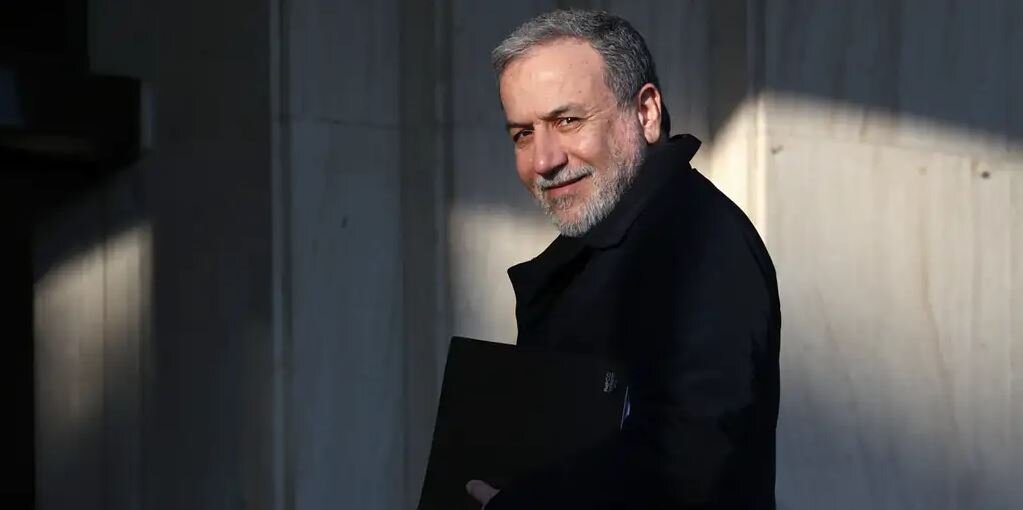Araghchi to visit China ahead of third round of indirect talks with U.S.

TEHRAN – The spokesman for Iran’s Foreign Ministry announced that Foreign Minister Abbas Araghchi will travel to China on Tuesday.
Esmaeil Baghaei announced the news in a press conference on Monday.
It is expected that the high-level discussions between Iran and China include updates on the ongoing negotiations with Washington and follow-ups on bilateral agreements with Beijing.
Answering to a question from the Tehran Times reporter regarding the nature of the trip, the Foreign Ministry spokesman emphasized that the trip to China had been planned well in advance. “Naturally, during this visit, we will consult with Chinese officials about the status of negotiations and brief them on the latest developments,” Baghaei said. He noted that the visit is also aimed at accelerating the implementation of previously signed agreements, which fall within the broader framework of Iran and China’s growing strategic partnership.
The trip comes at a pivotal moment in Iran’s diplomatic calendar, as indirect negotiations between Tehran and Washington have entered a delicate phase. Baghaei confirmed that both expert-level discussions and a third round of high-level talks between Foreign Minister Araghchi and the U.S. special envoy Steve Witkoff will be held in Muscat, Oman. These meetings aim to resolve remaining disagreements over the future of Iran’s nuclear program and the lifting of U.S. sanctions.
Also, and ahead of the second round of talks held in Rome on April 20, Araghchi visited Moscow, where he held a joint press conference with Russian Foreign Minister Sergei Lavrov. During the briefing, Araghchi stated that a deal with the United States was possible—provided that Washington refrains from making what he called “unrealistic” or “unreasonable” demands.
“We will only negotiate over the nuclear issue. Other topics are not on the table,” Araghchi said. “I believe an agreement is within reach if the U.S. shows genuine intent and avoids excessive or impractical conditions.”
Lavrov echoed those remarks, reiterating Russia’s readiness to facilitate the process in any way deemed useful by both parties. “We are prepared to help, mediate, and support the negotiations, provided that our role is acceptable to both Iran and the United States,” he said. Lavrov underscored that any future agreement should remain strictly limited to nuclear-related issues, calling this a “fundamental” principle of Moscow’s position.
According to Lavrov, Russian President Vladimir Putin was "very pleased" with his recent meeting with Araghchi, indicating Russia's active interest in the outcome of the current diplomatic push.
The second round of indirect Iran-U.S. negotiations was held at the Omani Embassy in Rome on Saturday. Talks focused on clarifying each side’s expectations, while narrowing technical gaps regarding nuclear enrichment levels, sanction relief, and verification mechanisms.
The two delegations agreed to hold technical-level negotiations in Muscat on April 23, where expert teams will work on a framework for a potential deal. A third high-level meeting between Araghchi and Witkoff is scheduled for April 26, also in Muscat, to evaluate progress and determine whether the parties are close enough to proceed to a formal agreement.
The current negotiations follow years of fluctuating U.S. policy toward Iran. During his first term, President Donald Trump unilaterally withdrew the United States from the JCPOA in 2018 and reimposed severe sanctions as part of a “maximum pressure” campaign. After returning to the White House in January for a second term, Trump signaled a shift in tone, expressing willingness to negotiate a new deal.
On March 12, Trump reportedly sent a letter to Iranian leaders proposing new negotiations and warning of military consequences should Tehran refuse. While Iran has ruled out direct talks under coercion, it has remained open to indirect discussions, as long as they respect the country’s sovereignty and focus solely on nuclear issues.
As preparations continue for the next rounds of talks, Iran’s diplomatic engagement with China, Russia, and regional stakeholders appears to be aimed at securing political backing and reinforcing its negotiating position. Whether these efforts will culminate in a breakthrough remains to be seen, but Tehran’s approach suggests a calculated effort to keep pressure balanced—and the door to diplomacy open.
Leave a Comment